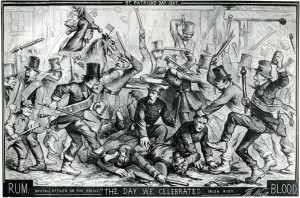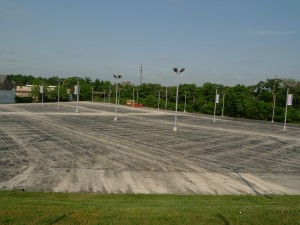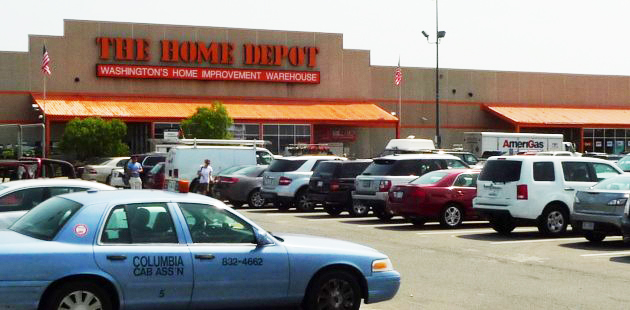Baltimore work it out: Create jobs in the city
In this town, there are those whose work is never done.
At the same time, there are also many with way too much time on their hands. My friend and neighbor, Diana Mitchell, is one of the former. Diana brings fire for her work at the Charles Village Benefits District, a non-profit neighborhood group. She organizes meetings with officials and citizens, goes on midnight safety walks with neighbors, fosters rescue pit bulls in her home and still manages to bring the Navy up from Annapolis to make a reading garden out of an empty lot near Greenmount Avenue. Her days are never done.

Thousands of people in Baltimore are just like her. People who serve with or without pay. From Overlea over to Park Heights down to Westport and Cherry Hill, people who have little and give thankless countless hours each week, month and year to make something good out of the detritus this city generates. And still, it’s not enough. It’s never enough when other folks, even those who have little but time, take more than they are giving back.
Talk all you want about billionaires taking all the profits, offering little employment for their riches and you’ll get no argument from me. Still, as a city, we have an obligation to the rule of law and to our own people to ensure that jobs and a way of life come back to Baltimore. If we stick to this plan, my guess is we will have few repeats like the mob attack on our Virginia visitor over St. Paddy’s Day weekend.
We Americans of Irish descent often forget Baltimore was nicknamed Mobtown because of us and our behavior. We also forget that we were once deemed a mob simply by walking down a street in groups of three. In our uniquely American way of remembering only the good in our past, we have come to forget that we Irish were once seen as the lazy, good for nothing Papist hoard that would ruin this nation. As well, it was even said we were lousy Indian fighters too as we hadn’t the proper blood to fight the “red man.” Even so, State Delegate Pat McDonough’s odious stab at the truth is the latest example that the Irish in America have indeed finally mainstreamed.
While Delegate McDonough’s “black mobs” quote was alarming and accusatory, are we sure it was untrue? Just as unhelpful may have been the response from Doc Cheatham, former head of the Baltimore chapter of the NAACP. In choosing to deflect attention from the young who both engage and endure this mob reality, he said “you have given us reason to discuss your bigotry” in referring to McDonough’s words.

A good man indeed, Cheatham has challenged the state delegate to come to the city and see what he sees. In living six blocks east of the NAACP offices, everyday I see what both of you are saying as do most of us here in the city. While I empathize with Cheatham’s view on the jobless reality that is Baltimore, being defensive simply lends credence to such abhorrent behavior becoming the norm.
A development project, first proposed in 2009 to bring a Walmart and a Lowes building supply, the first such store in the central part of the city, to a disused site at the west end of 25th street has stalled. Though city zoning gave its approval in fall 2010, calls for living wages, green building and minority hiring continued throughout 2011 to the present. Since then, Lowes has pulled out of the project and the developers are being taken to appeals court by individuals from a nearby neighborhood. The project is set to begin no earlier than this time next year (2013).

Baltimore was once the economic engine of Maryland, but is now a city where many of its residents must commute out of town for work and are taxed at a higher rate by a city that hasn’t enough jobs to support its population. They commute to Baltimore County or down the corridor between here and DC for work.
Any city that has blossomed from its rusted industrial era in the past 20 years has done so with the use of national chains and big box stores. If we look at the development done by the same group, on Rhode Island Avenue NE in Washington, we find a Home Depot, three banks, a Giant supmarket and a TJ Maxx. We also find a linen shop and a sporting goods store. All these stores have locals employed, some of whom even walk to work. The development, in a high population area of DC, used the chain store as the hub to bring in other, smaller shops and it worked. There are both jobs and services available to locals, accessible by transit and foot.
Here in Baltimore, when we have the first retail development offer in years that includes neither high end living accommodation or finance, we demand more. We demand green building, living wages and minority hiring yet we seem willing to walk away from the bargaining table with nothing for our people. And, has anyone noticed how much of this city is in serious need of a renovation?
Baltimore City desperately needs jobs. While I agree with the potential of greater wages, better building practice and more inclusive hiring, sometimes getting just what we need first is better than getting all of what we want. As a city, we cannot help anyone else unless we first help ourselves. With more tax revenues going to the city and easier access to goods and materials, the 25th Street Project is a start for growth that can exponentially build on itself.
Ask any kid in this town, they’ll tell you. When you have no job and no prospects for one, you’re at the bottom. When you’re at the bottom, you do things you know in your heart you shouldn’t do. At the bottom is where we find ourselves when it comes to our mobs of young people beating on tourists and each other.
A suggestion to Cheatham and McDonough: do as the president, Professor Gates and Sgt. Crowley did. Put your pride in your back pockets and some hope in the front. Sit on the steps of the NAACP offices with a six pack and hash things out in public. And, let City Hall see you do it. Tell the city police to cut you some slack about the open containers for the afternoon. If you seek a solution, I believe you will find more common ground and kinship of purpose than you know. You will also give the young of this town reason to talk matters out rather than the use of fists and weapons first.
You two gents need only think of one truism. If the victim of the courthouse attack on St. Patrick’s Day were black, would city leaders, white or black, have paid the same attention? We lost a black motorcyclist from Virginia on the west side several years ago as he tried to avoid a man riding with an infant on an illegal dirt bike. His sad death saw no such press or public interest.
We need only think of him or how much public outcry it took to get the top lawman in the nation to pay attention to the death of just one of our young people in Florida. Do not be so ordinary as people think we are. Remember that we take our beatings as we go, so the kids won’t have to.
(Feature photo of Home Depot and booming development project in DC. All photos by Robert Mara.)
Robert Emmet Mara has been in Baltimore since 2006. A native New Yorker, Robert came to Baltimore to do three things: work with kids, renovate houses and write a second book of fiction. Since his arrival, he has managed to do all three and more.
He has sought better oversight for his still blighted Harwood neighborhood from the city and has been asked to speak to various community association leaders on the subject of city agency relations.

